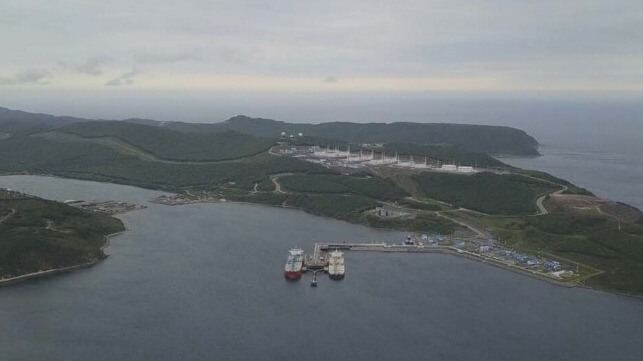American Club Pushes Back on NYT Report on AIS Spoofing

The American Club has taken issue with a recent New York Times investigation into the operations of certain tankers in its insurance pool, and in a public statement released this week, it criticized the reporters involved and questioned their understanding of the way that the maritime industry works.
On May 30, the New York Times ran a story on AIS spoofing patterns in the Kozmino-to-China oil trade, publishing it on the front page above the fold. Though detailed, it was not the first report of its kind: several researchers have previously raised concerns that the tankers carrying crude out of the Russian Far East oil port of Kozmino may be noncompliant with G7 sanctions which cap the price of seaborne Russian crude at $60 per barrel. This is the maximum price allowable for the involvement of Western shipping interests, including vessel operators, shipbrokers and marine insurers. Since Kozmino crude has routinely traded above the $60 threshold, these shipments have drawn scrutiny.
The Times' Visual Investigations team - acting on information from the market intelligence firm TankerTrackers.com - examined AIS patterns for Western-insured tankers in the Sea of Japan. The reporters focused on three vessels that showed clear signs of spoofing, and they used TankerTrackers' technique of checking optical satellite surveillance to confirm the actual locations of the vessels, not where the ships claimed to be via their AIS transmissions.
The first in line was the tanker Cathay Phoenix, which visited the Sea of Japan in February. At first, its AIS showed it navigating on a northeasterly course, but it began making a tight racetrack pattern with jagged course changes and precise repetitions - an unusual and difficult-to-execute route for a Suezmax at sea. Satellite imagery taken of this position during the same timeframe showed that the ship was not actually there.
The vessel's actual course, according to the Times, took it to a loading terminal at Kozmino. The team confirmed the ship's presence at the Russian oil port using high-resolution satellite imagery, and doubled the evidence by finding a recent photo of its stern on a Russian tug operator's social media account.
According to the Visual Investigations team, three tankers (Cathay Phoenix, Alma and Eternal Peace) were spotted at Kozmino by satellite while spoofing their locations in the Sea of Japan. All were insured by American Club at the time.
According to the Times, the reporters engaged with American Club by email but the insurer declined to comment on any specific investigations. However, American Club's account of the interaction suggested that it had provided the Times with more, including industry "nuances and complexities," which had been "taken out of context or misreported." In particular, the American Club said that it disagreed with the Times' characterization of one ship's cargo as crude oil; in another instance, it disagreed with the Times on the true location of a ship which was known to be engaged in spoofing.
"The American Club is very much aware of [spoofing] and routinely takes steps to identify such improper behavior and to take appropriate action where necessary," the firm said.

that matters most
Get the latest maritime news delivered to your inbox daily.
The U.S. Treasury has previously singled out the waters around Kozmino as a high-risk area for spoofing and sanctions evasion, and a compliance consultant and a former Treasury official told the Times that the vessels in question had indications of illicit activity which would warrant extra scrutiny by Western service providers. The American Club pushed back, accusing the reporters of "factual errors, clear distortions, bias, innuendo and serious omissions of relevant information."
Ten years ago, in 2013, American Club paid the Treasury's Office of Foreign Asset Control (OFAC) a sum of about $350,000 to settle alleged violations of US sanctions on Iran, Sudan and Cuba.
